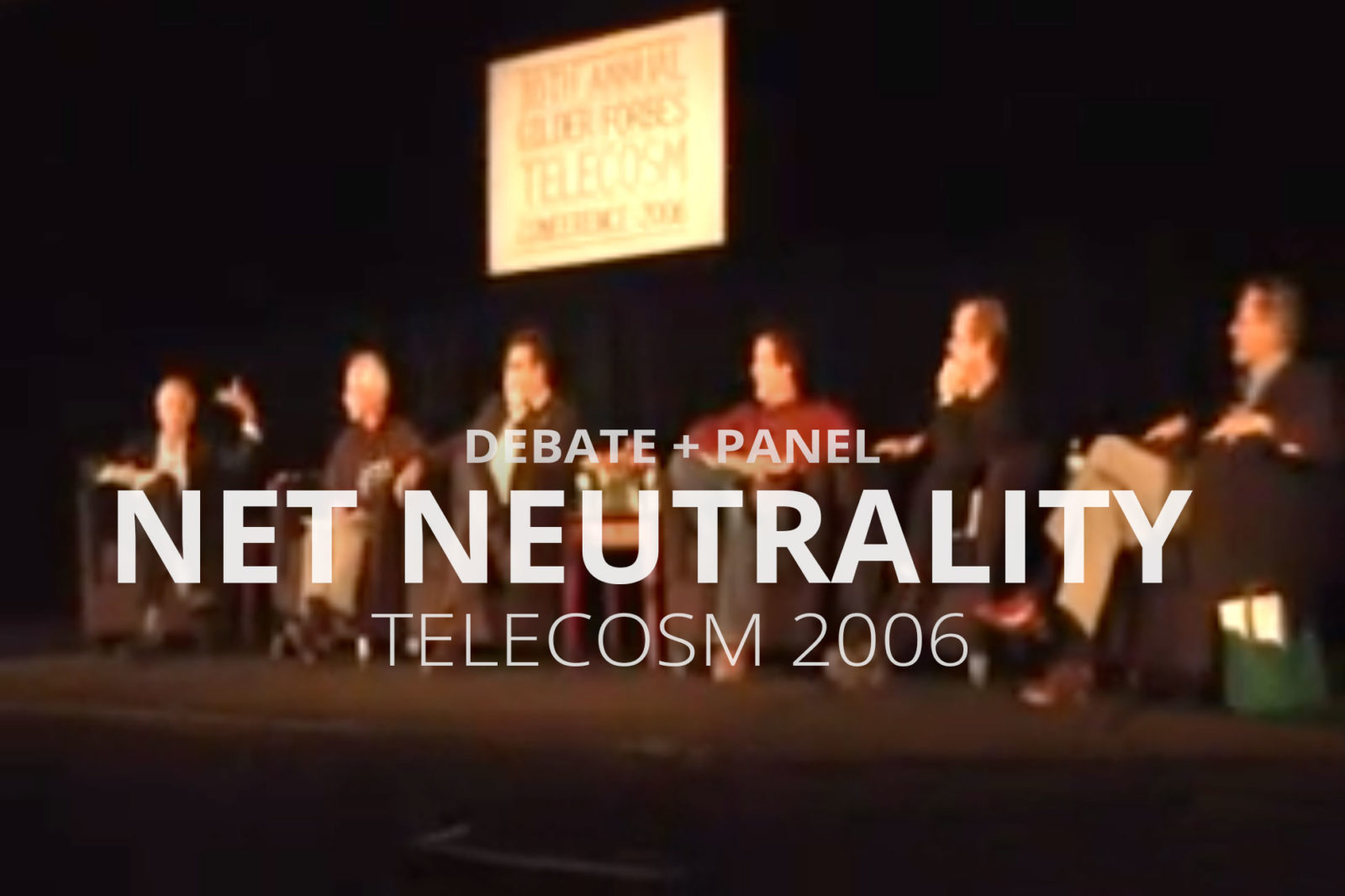
Broadband Brawl
The 10th Annual Gilder | Forbes Telecosm Conference, held October 4-6, 2006 in Lake Tahoe, California, featured an outstanding panel and debate sponsored by the Discovery Institute on the subject of Network Neutrality regulation. Broadband Brawl: A Debate Over Net Neutrality Tod Cohen: Vice-President and Deputy General Counsel, Government Relations, eBay George Gilder, Senior Fellow, Discovery Institute; Editor in Chief, Read More ›
